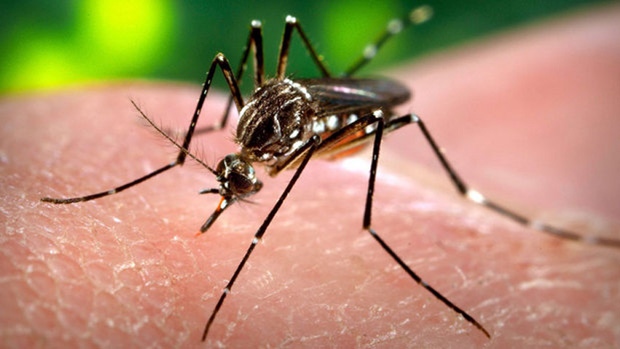What is the Zika Virus?
A popular topic trending in the news as of yet is another disease is known as the Zika Virus, which is transmitted through mosquito bites. The disease originated in Uganda around the year 1947, however the recent outbreak began when a case was found in May of 2015 in Brazil. Before 2015, there had only been around 200 cases of the Zika Virus. According to the World Health Organization, the virus could infect over four million people. So far, a total of 4,000 people have been affected by the disease. The illness rarely leads to death, and there is a slim chance the infected will have to go to the hospital, however, it does lead to birth defects if a pregnant woman is infected.
The birth defect caused by the Zika Virus is known as microcephaly. This causes the baby to have an abnormally small head. The head size is a result of the brain being smaller than normal. Because of this, the fetus takes a longer time to develop in the womb. Other problems that come with microcephaly include seizures, developmental delay, learning disabilities, and hearing/vision problems. Microcephaly is a lifelong disease that, unfortunately, does not have a cure. Treatment, however, does exist and varies depending on the severity of the disease. Babies with a mild case will need to schedule routine check ups so doctors can monitor development, however babies with more severe cases need to be medicated in case of seizures as well as attending speech and physical therapy to help with developmental issues.
#ZikaVirus is spreading far & fast. Here’s what you need to know: https://t.co/sc1N8oFd79 pic.twitter.com/kPwt2JIFvQ
— UNICEF (@UNICEF) February 15, 2016
Since the outbreak, the CDC highly recommends not traveling to areas where the virus can be found as well as the surrounding areas. As mission trips quickly approach, missionaries from the Dominican Republic are taking extreme caution before they leave. Trip coordinator, Rebecca Zambrano, released forms several weeks ago for all attendees and their parents to sign. After consulting doctors and researching information on the CDC’s website, Zambrano assures parents that there are only mild effects if one of the student’s contracts the virus.
Simple measures can lower risk of getting infected with #ZikaVirus. What you need to know: https://t.co/sc1N8oFd79 pic.twitter.com/a4ptyxaFsg
— UNICEF (@UNICEF) February 14, 2016
When asked about the forms, junior DR missionary, Jenna Wiley reveals, “The form was for our parents about the Zika Virus. It was in an email with different links for our parents to learn about the virus so they could make a cautious decision of whether or not we should go on the trip”.
Zambrano assured she is not overly concerned about the virus because, “As far as we know the virus does not cause severe symptoms (only mild cold/flu discomforts) and as far as we know today, apparently the risk is for pregnant women.” She also adds that her and the missionaries plan to “Take the necessary precautions, using mosquito repellent and wearing long sleeve shirts and pants etc…”.
An estimated one in five people became ill after contracting the disease, however it normally is never harmful. Symptoms include fever, rash, joint and muscle pain, and headaches. The illness typically remains in the blood for about a week, however it may sometimes last longer. Since there is no vaccine, it is important to wear long sleeves/pants, use insect repellant, and stay in places such as air conditioned areas to keep mosquitos out. For more information on the virus and how to prevent from catching it, visit the CDC’s website, here.

Vanessa Alvarez is a third year member of Achona and one of four Editors-in-Chief, as well as Co-President of the Teen Leadership Council. Within the Academy...












